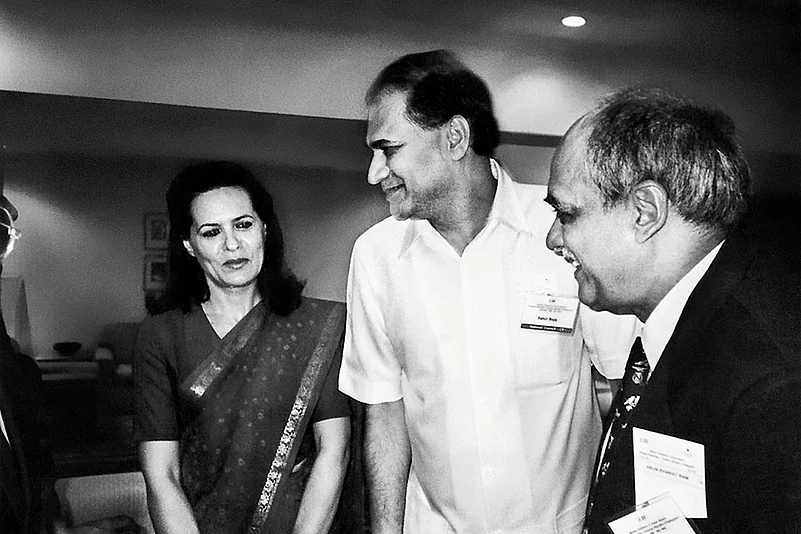Through a series of personal interviews and anecdotes, author Gita Piramal in her latest book Rahul Bajaj: An Extraordinary Life has traced the life and learnings of one of India’s biggest and boldest businessmen. Piramal speaks with Outlook Business and shares how Bajaj stood tall amidst the other business leaders of his time, how he exemplified leadership and why he will be missed. Edited excerpts:
What was the importance of Rahul Bajaj’s stand against the government’s liberalisation move in 1991? Looking back, did his anti-liberalisation stand help India Inc?
This is a more nuanced situation than the question suggests. As I have written in the book, Rahul Bajaj emphasises, “I was shouting away in the 1980s for liberalisation - we wanted Indian companies to become multinational corporations. But in 1993, I became infamous. When I asked for a level playing field, everybody thought this was an euphemism for protection. Economic liberalisation was good for India, and I said so on many platforms.” Do read the book for more details.
Rahul Bajaj was instrumental in getting India Inc a prominent voice at global groupings such as WEF. Do you see anyone taking over this mantle from him?
He was certainly a prominent voice in these forums at a time when the Indian industry was not as known globally as it is today. Now, not only has the perception of India as a market changed globally but also many Indian business groups have established a global presence. So, perhaps one may not need a single individual to play the catalytic role that he did in these forums.

At a time when the scope of dialogue between the government and industry is getting limited, how much will Rahul Bajaj be missed?
Rahul Bajaj will always be missed for his distinctive voice, whatever the prevailing circumstances.
You have written extensively on corporate leaders. How do you see the leadership style of Rahul Bajaj in relation to his peers across generations?
Rahul Bajaj exemplified leadership as it is taught in business schools and yet was often so elusive in the actual corporate world itself. He was a visionary, clear on strategy, decisive, action-oriented and execution-driven, and excellent with people and at building teams. The real differentiating factors were his conviction, and ability to speak out and defend his beliefs. Ultimately, these are the true hallmarks of leadership.
Looking at the Bajaj family, do you think the Indian business leadership style is equipped to lead the knowledge economy that India is becoming?
The Bajaj family is known for its values, ethics and sound business practices which have been maintained over generations. With interests in cutting-edge industries such as electric vehicles and the financial services sector which is extremely technology-led, I believe the Bajaj group is an excellent example of how one of India’s oldest business groups can take its legacy forward by adopting a progressive mindset. They set a great example to their peers and to young entrepreneurs.
(Gita Piramal is a bestselling author and a business historian. She has also written Business Maharajas and Business Legends)

























